The wealth of technical information that can be attained at Sheep 2023 is seriously impressive. There are over 10 technical areas offering the latest updates from research, current legislation and information on new schemes and initiatives.
Visitors will have a chance to talk one-to-one with specialists from Teagasc and other industry bodies while a busy schedule of demonstrations will showcase how these technology updates and learnings can be applied at farm level.
The following headings give a flavour of the main topics in each area.
With upwards of 85% of lamb performance sustained by grazed grass in prime lamb production systems and in excess of 90% of ewe intake typically derived from grass or grass-based forage, it is not surprising that grassland management has a pivotal role in sheep enterprises.
Sheep farmers have faced many challenges, linked primarily to escalating production costs in the last two years, with grassland costs (fertiliser, contractor, etc) increasing by over 100%.
While fertiliser prices are reducing, the use of chemical fertiliser may be limited in future years from a cost and environmental perspective.
The grassland stand will provide an update on current sheep grassland studies including learnings form grass clover and other companion forages. This will include a special focus on field selection in terms of soil fertility requirements, options for establishing clover swards and management post-emergence, delivered through clover over-sowing demos.
Nitrogen fertiliser types and their relative value in maximising N use efficiency and reducing costs will also be explored.
Grass utilisation and animal performance can be increased on most farms via improved grazing infrastructure.
A sward quality/management demonstration will feature permanent and temporary fencing options that can be used to create a paddock grazing system. This will dovetail nicely with demonstrations concentrating on grass measurement and budgeting and using PastureBase Ireland.
Breeding and genetics will feature strongly at Sheep 2023 in the sheep breed exhibit and in the breeding and genetics village, organised by Teagasc and Sheep Ireland.
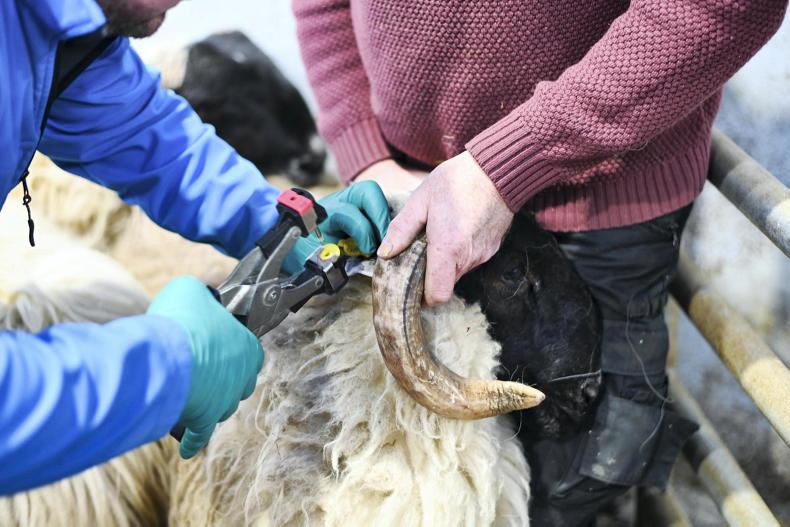
Sheep Ireland taking samples of ram DNA. \ Clive Wasson
The latest developments from the INZAC flock, which is exploring the performance of elite Irish and New Zealand genetics, in addition to validating the Irish replacement index, will be presented along with updates on other research studies taking place.
These include breeding for resilience to worms, reducing methane emissions via breeding, and what differences farmers can expect from consistently using five-star genetics.
The Sheep Ireland breed improvement programme continues to expand. Recent technologies such as genomics and the development of new traits including launching methane estimated breeding values (EBVs) for sheep, the carbon sub-index and faecal egg count will be explained.
Great importance has been placed on selecting animals on a combination of physical characteristics and genetic evaluations.
A number of practical workshops will focus on ewe and ram soundness for breeding, selecting replacements and using the Ram Search function on Sheep.ie, national sheep index validation and animal genotyping.
Last, but certainly not least, there will be a strong focus on the day and across numerous areas on complying with Sheep Improvement Scheme actions.
Sheep Ireland specialists and Teagasc advisers will be on hand to explain and field questions on the new genotyped ram task.
There will also be a demonstration on how best to find rams that are eligible for the scheme and importantly check that the sheep in question satisfy the required criteria.
Sheep categorised as mountain and mountain-cross in the 2022 Department of Agriculture Annual Sheep and Goat Census accounted for 46% of the national flock on 31 December 2022.
In contrast to many lowland areas, hill flock numbers have grown in recent years and breeding programmes play an important role in producing replacements for lowland flocks.
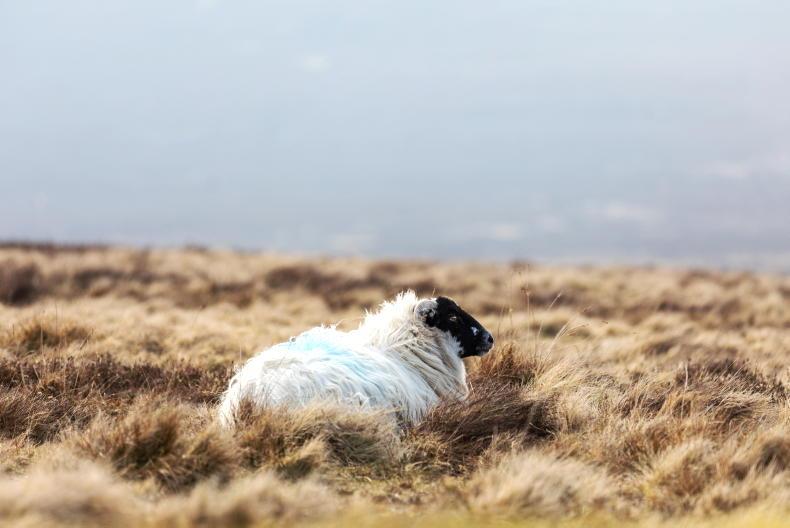
Teagasc research and advisory specialists will present results from the extensive ongoing research on hill lamb finishing systems. \ Claire Nash
The hill sheep village at Sheep 2023 will focus on some of the key technologies that can help increase the physical and financial performance of hill flocks. This will include opportunities to hear from farmers participating in the Teagasc BETTER farm sheep programme.
Market opportunities for hill lambs were unfortunately under pressure in 2022.
Update
Teagasc research and advisory specialists will present results from the extensive ongoing research on hill lamb finishing systems.
This will include an update on recent experiments examining the merits of brassica cover crops in finishing lambs, as well as updates on finishing hill lambs at lighter carcase weights and the economics of different finishing systems.
Organic farming
Ireland has ambitious targets to increase the area of land farmed organically from 2.5% in 2020 to 7.5% in 2027. A suite of supports are available to encourage higher uptake, including a €250m fund for the organic farming scheme.
Generous support payments, worth over €12,000 per year for five years to sheep farmers, have already seen numbers double to approximately 4,000 farmers in conversion or converted to organic farming. Within this, 1,500 are sheep farmers reflecting the high levels of interest present.
The Teagasc organic advisory team and the organic certification bodies (Irish Organic Association and Organic Trust) will explain the options available to farmers including the certification process.
The Department of Agriculture will be in attendance to explain the workings of the organic farming scheme, the TAMS III Organic Capital Investment Scheme and the Organic Processing Investment Grant Scheme.
Nutrition is one of the key pillars of an efficient production system. It has a key role in flock reproductive performance, which has a major influence on flock profitability, while the nutritional programme in place will directly influence production costs.
Results
The latest results from experimental studies on ewe nutrition during late pregnancy will be displayed along with the effect of silage feed value on ewe performance and costs.
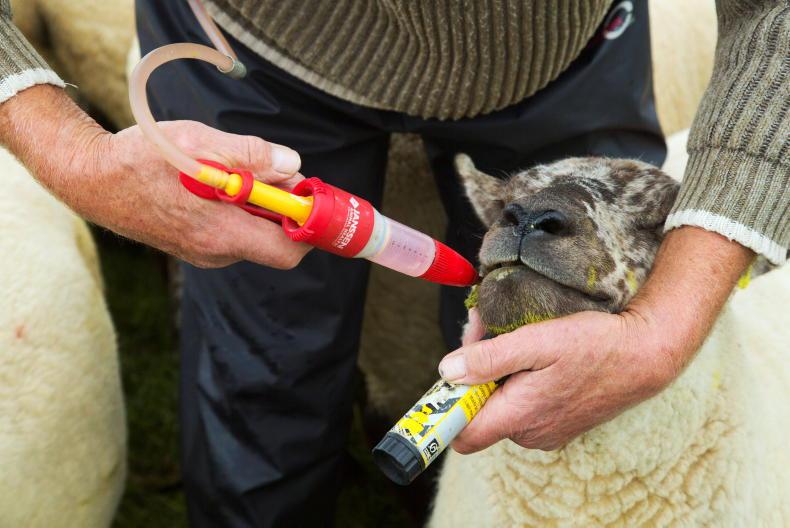
The focus on resistance will include workshops on carrying out a drench test and understanding how anthelmintic resistance develops. \ David Ruffles
This is an important topic given concentrate costs account for over 40% of variable costs.
Timely lessons on the importance of high-feed-quality winter forage and tips to ensile such forage will also be discussed.
Mineral nutrition and creep feeding are also high on the agenda, with the latter practice examined in terms of its impact on performance, volume of feed required and economics of feeding creep relative to finishing lambs off grass.
We cannot ignore the fact farms can pose a myriad of risks that unfortunately claim the lives of far too many people and lead to significant injuries, some of which can be life changing.
The health and safety exhibit at Sheep 2023 will address the common risks, including a visual display depicting the risks linked to tractors and vehicle blind spots.

An Garda Síochána will be on site to highlight the security risks on farms to be conscious to and also provide guidance on trailer towing rules. \ David Ruffles
New legislative requirements for training and personal protective equipment when operating an ATV will be discussed, along with demonstrations on safe sheep handling practices and handling equipment that can reduce the long-term toll on your body.
An Garda Síochána will be on site to highlight the security risks on farms to be conscious of and also provide guidance on trailer towing rules.
Growing mental health issues are under the spotlight and a proactive approach to mental and physical health will be discussed.
The main sponsor of Sheep 2023, Irish Country Meats, is also funding free health checks carried out by the Irish Heart Foundation.
Two tractor simulators are sure to grab the attention of patrons’ young and old keen to put their tractor and machinery skills to the test. While this may attract the limelight, the Teagasc education area will be busy focusing on providing visitors with information promoting careers within the sheep and drystock sectors and guidance on courses that deliver the optimum balance between practical and theory teachings.
Course options to suit different objectives or stages of life can be explored on the day while Gurteen Agricultural College will also detail information about their high-performing sheep flock.
The forestry exhibit is billing its offering as “forest types for all farm settings”. Key information disseminated in this area explores the wide range of forest types available under new Forestry Programme 2023-2027.
The programme encompasses 12 forest types which are described as offering very generous grants and annual premiums for farmers and non-farming landowners.
Forestry specialists will be on hand to discuss all options from conifer to broadleaf forests with a commercial focus to native forests aimed at enhancing water quality and other benefits, continuous cover forests or naturally emergent forests and, of course, agroforestry which is suited to a sheep farming mix.
Advice
Interested patrons can gain advice on how a new forest venture can fit in on their farm, how it can meet farm family objectives, intertwine to optimum effect with CAP schemes and complement other farm enterprises.
Flock health encompasses a wide spectrum of areas with a number of key health topics identified for Sheep 2023. Preventing and treating lameness is a timely topic that will discuss the important aspect of correctly identifying the cause of lameness, the prevalence and then putting a robust control programme in place.
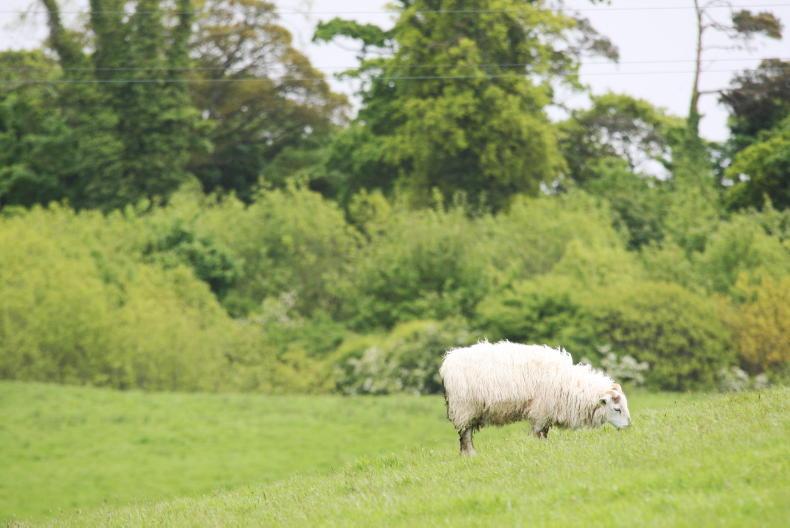
Nutrition is key in flock reproductive performance.
Anthelmintic resistance is not an attractive subject but it is one that an increasing number of sheep farmers have to come to terms with. The focus on resistance will include workshops on carrying out a drench test and understanding how anthelmintic resistance develops.
Another important area under the microscope is external parasite control. This topic will also look at the correct use and safe disposal of spent sheep dip. The Department’s regional veterinary laboratories will also be in attendance to discuss topical issues including a ‘thin ewe survey’ which is currently under way.
Environmental considerations
There are several environment focus areas across the day with a number of these located in the technical villages. Aspects such as managing hedgerows to maximise their environmental benefit, valuing our native flora and fauna and safeguarding birds of prey such as barn owls by following the code for responsible rodenticide use (CRRU) will be presented.
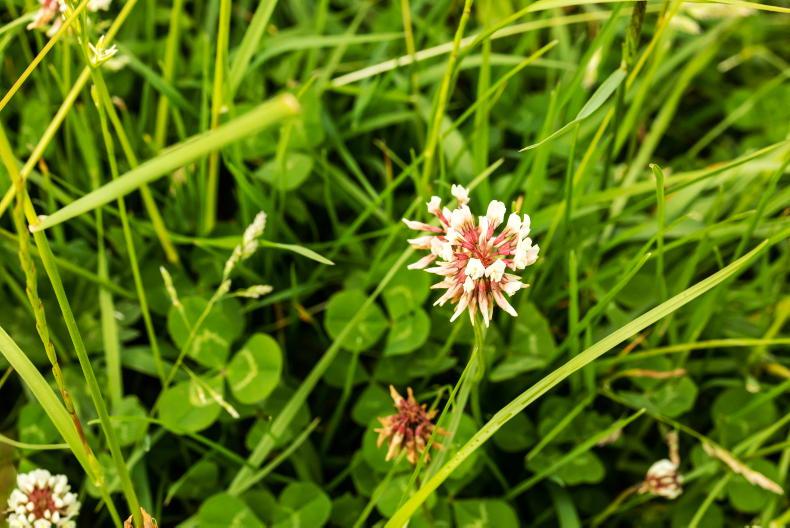
Clover. \ Philip Doyle
Ireland has an ambitious target of having all waters categorised as ‘good status’ by 2027.
The Agricultural Sustainability Support and Advisory Programme (ASSAP) provides a free and confidential advisory service to farmers regarding practices and technologies that can be adopted to improve and safeguard water quality in Priority Areas for Action (PAA). ASSAP advisers will be on hand to engage with farmers.
Simple actions
Meanwhile, the Signpost Programme will deliver first hand simple actions that you can follow to reduce emissions on your farm.
A number of participating farmers will share their experience while there is also an opportunity to sign up to the free Signpost Advisory Programme.
Last but not least, EuroSheep will present learnings from the programme including ways to reduce greenhouse gas emissions.
The wealth of technical information that can be attained at Sheep 2023 is seriously impressive. There are over 10 technical areas offering the latest updates from research, current legislation and information on new schemes and initiatives.
Visitors will have a chance to talk one-to-one with specialists from Teagasc and other industry bodies while a busy schedule of demonstrations will showcase how these technology updates and learnings can be applied at farm level.
The following headings give a flavour of the main topics in each area.
With upwards of 85% of lamb performance sustained by grazed grass in prime lamb production systems and in excess of 90% of ewe intake typically derived from grass or grass-based forage, it is not surprising that grassland management has a pivotal role in sheep enterprises.
Sheep farmers have faced many challenges, linked primarily to escalating production costs in the last two years, with grassland costs (fertiliser, contractor, etc) increasing by over 100%.
While fertiliser prices are reducing, the use of chemical fertiliser may be limited in future years from a cost and environmental perspective.
The grassland stand will provide an update on current sheep grassland studies including learnings form grass clover and other companion forages. This will include a special focus on field selection in terms of soil fertility requirements, options for establishing clover swards and management post-emergence, delivered through clover over-sowing demos.
Nitrogen fertiliser types and their relative value in maximising N use efficiency and reducing costs will also be explored.
Grass utilisation and animal performance can be increased on most farms via improved grazing infrastructure.
A sward quality/management demonstration will feature permanent and temporary fencing options that can be used to create a paddock grazing system. This will dovetail nicely with demonstrations concentrating on grass measurement and budgeting and using PastureBase Ireland.
Breeding and genetics will feature strongly at Sheep 2023 in the sheep breed exhibit and in the breeding and genetics village, organised by Teagasc and Sheep Ireland.

Sheep Ireland taking samples of ram DNA. \ Clive Wasson
The latest developments from the INZAC flock, which is exploring the performance of elite Irish and New Zealand genetics, in addition to validating the Irish replacement index, will be presented along with updates on other research studies taking place.
These include breeding for resilience to worms, reducing methane emissions via breeding, and what differences farmers can expect from consistently using five-star genetics.
The Sheep Ireland breed improvement programme continues to expand. Recent technologies such as genomics and the development of new traits including launching methane estimated breeding values (EBVs) for sheep, the carbon sub-index and faecal egg count will be explained.
Great importance has been placed on selecting animals on a combination of physical characteristics and genetic evaluations.
A number of practical workshops will focus on ewe and ram soundness for breeding, selecting replacements and using the Ram Search function on Sheep.ie, national sheep index validation and animal genotyping.
Last, but certainly not least, there will be a strong focus on the day and across numerous areas on complying with Sheep Improvement Scheme actions.
Sheep Ireland specialists and Teagasc advisers will be on hand to explain and field questions on the new genotyped ram task.
There will also be a demonstration on how best to find rams that are eligible for the scheme and importantly check that the sheep in question satisfy the required criteria.
Sheep categorised as mountain and mountain-cross in the 2022 Department of Agriculture Annual Sheep and Goat Census accounted for 46% of the national flock on 31 December 2022.
In contrast to many lowland areas, hill flock numbers have grown in recent years and breeding programmes play an important role in producing replacements for lowland flocks.

Teagasc research and advisory specialists will present results from the extensive ongoing research on hill lamb finishing systems. \ Claire Nash
The hill sheep village at Sheep 2023 will focus on some of the key technologies that can help increase the physical and financial performance of hill flocks. This will include opportunities to hear from farmers participating in the Teagasc BETTER farm sheep programme.
Market opportunities for hill lambs were unfortunately under pressure in 2022.
Update
Teagasc research and advisory specialists will present results from the extensive ongoing research on hill lamb finishing systems.
This will include an update on recent experiments examining the merits of brassica cover crops in finishing lambs, as well as updates on finishing hill lambs at lighter carcase weights and the economics of different finishing systems.
Organic farming
Ireland has ambitious targets to increase the area of land farmed organically from 2.5% in 2020 to 7.5% in 2027. A suite of supports are available to encourage higher uptake, including a €250m fund for the organic farming scheme.
Generous support payments, worth over €12,000 per year for five years to sheep farmers, have already seen numbers double to approximately 4,000 farmers in conversion or converted to organic farming. Within this, 1,500 are sheep farmers reflecting the high levels of interest present.
The Teagasc organic advisory team and the organic certification bodies (Irish Organic Association and Organic Trust) will explain the options available to farmers including the certification process.
The Department of Agriculture will be in attendance to explain the workings of the organic farming scheme, the TAMS III Organic Capital Investment Scheme and the Organic Processing Investment Grant Scheme.
Nutrition is one of the key pillars of an efficient production system. It has a key role in flock reproductive performance, which has a major influence on flock profitability, while the nutritional programme in place will directly influence production costs.
Results
The latest results from experimental studies on ewe nutrition during late pregnancy will be displayed along with the effect of silage feed value on ewe performance and costs.

The focus on resistance will include workshops on carrying out a drench test and understanding how anthelmintic resistance develops. \ David Ruffles
This is an important topic given concentrate costs account for over 40% of variable costs.
Timely lessons on the importance of high-feed-quality winter forage and tips to ensile such forage will also be discussed.
Mineral nutrition and creep feeding are also high on the agenda, with the latter practice examined in terms of its impact on performance, volume of feed required and economics of feeding creep relative to finishing lambs off grass.
We cannot ignore the fact farms can pose a myriad of risks that unfortunately claim the lives of far too many people and lead to significant injuries, some of which can be life changing.
The health and safety exhibit at Sheep 2023 will address the common risks, including a visual display depicting the risks linked to tractors and vehicle blind spots.

An Garda Síochána will be on site to highlight the security risks on farms to be conscious to and also provide guidance on trailer towing rules. \ David Ruffles
New legislative requirements for training and personal protective equipment when operating an ATV will be discussed, along with demonstrations on safe sheep handling practices and handling equipment that can reduce the long-term toll on your body.
An Garda Síochána will be on site to highlight the security risks on farms to be conscious of and also provide guidance on trailer towing rules.
Growing mental health issues are under the spotlight and a proactive approach to mental and physical health will be discussed.
The main sponsor of Sheep 2023, Irish Country Meats, is also funding free health checks carried out by the Irish Heart Foundation.
Two tractor simulators are sure to grab the attention of patrons’ young and old keen to put their tractor and machinery skills to the test. While this may attract the limelight, the Teagasc education area will be busy focusing on providing visitors with information promoting careers within the sheep and drystock sectors and guidance on courses that deliver the optimum balance between practical and theory teachings.
Course options to suit different objectives or stages of life can be explored on the day while Gurteen Agricultural College will also detail information about their high-performing sheep flock.
The forestry exhibit is billing its offering as “forest types for all farm settings”. Key information disseminated in this area explores the wide range of forest types available under new Forestry Programme 2023-2027.
The programme encompasses 12 forest types which are described as offering very generous grants and annual premiums for farmers and non-farming landowners.
Forestry specialists will be on hand to discuss all options from conifer to broadleaf forests with a commercial focus to native forests aimed at enhancing water quality and other benefits, continuous cover forests or naturally emergent forests and, of course, agroforestry which is suited to a sheep farming mix.
Advice
Interested patrons can gain advice on how a new forest venture can fit in on their farm, how it can meet farm family objectives, intertwine to optimum effect with CAP schemes and complement other farm enterprises.
Flock health encompasses a wide spectrum of areas with a number of key health topics identified for Sheep 2023. Preventing and treating lameness is a timely topic that will discuss the important aspect of correctly identifying the cause of lameness, the prevalence and then putting a robust control programme in place.

Nutrition is key in flock reproductive performance.
Anthelmintic resistance is not an attractive subject but it is one that an increasing number of sheep farmers have to come to terms with. The focus on resistance will include workshops on carrying out a drench test and understanding how anthelmintic resistance develops.
Another important area under the microscope is external parasite control. This topic will also look at the correct use and safe disposal of spent sheep dip. The Department’s regional veterinary laboratories will also be in attendance to discuss topical issues including a ‘thin ewe survey’ which is currently under way.
Environmental considerations
There are several environment focus areas across the day with a number of these located in the technical villages. Aspects such as managing hedgerows to maximise their environmental benefit, valuing our native flora and fauna and safeguarding birds of prey such as barn owls by following the code for responsible rodenticide use (CRRU) will be presented.

Clover. \ Philip Doyle
Ireland has an ambitious target of having all waters categorised as ‘good status’ by 2027.
The Agricultural Sustainability Support and Advisory Programme (ASSAP) provides a free and confidential advisory service to farmers regarding practices and technologies that can be adopted to improve and safeguard water quality in Priority Areas for Action (PAA). ASSAP advisers will be on hand to engage with farmers.
Simple actions
Meanwhile, the Signpost Programme will deliver first hand simple actions that you can follow to reduce emissions on your farm.
A number of participating farmers will share their experience while there is also an opportunity to sign up to the free Signpost Advisory Programme.
Last but not least, EuroSheep will present learnings from the programme including ways to reduce greenhouse gas emissions.










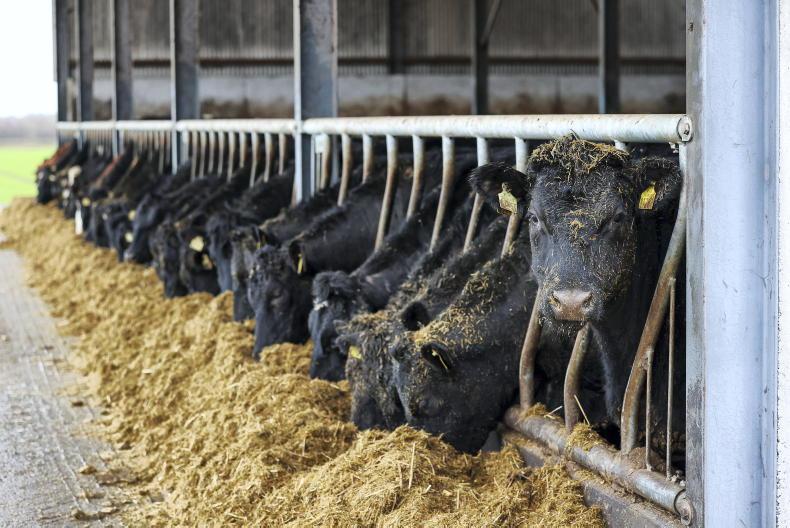
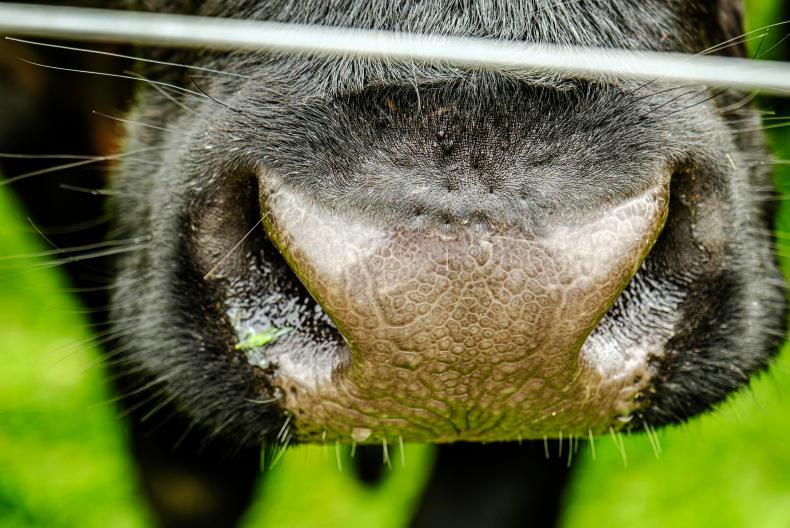
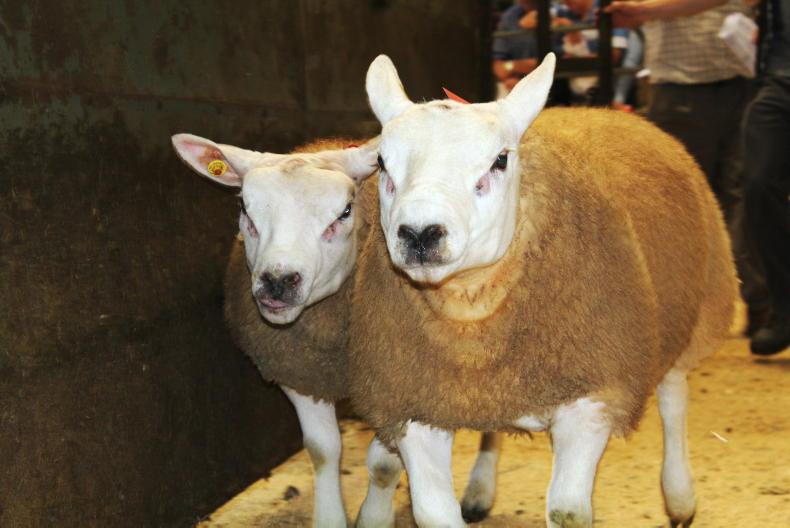

SHARING OPTIONS